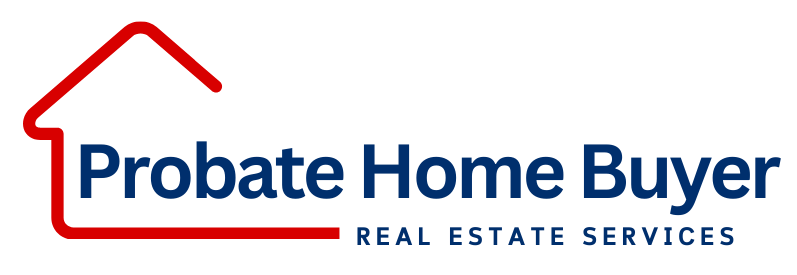Selling a House Going Through Probate in Connecticut
Selling a house in Connecticut that is currently undergoing the probate process can be quite challenging. Numerous legal procedures must be followed before the property can be officially listed as a probate sale. Furthermore, even after the property is successfully sold, there are still various paperwork requirements that need to be fulfilled.
Selling a probate property is done through Four steps:
Appointing an executor or administrator
An executor, administrator or temporary administer of a decedent’s estate, conservator of the estate, guardian of the estate of a minor, to petition the court for permission to sell or mortgage real property.
petitioning the court to begin the sale and listing the property
The fiduciary must file, if not previously filed, an Inventory, PC-440, that lists the real property and includes a copy of the recorded deed (including the property description).
Asking the court for sale approval
If the fiduciary is requesting authority to sell real property, the fiduciary must include a copy of the contract of sale and present evidence of the fair market value of the real property.
It also doesn’t guarantee that the family members would receive a Large portion of the sale amount, especially if the deceased owner has a lot of debts.
Whether you are an executor who needs guidance on the probate process or simply a relative who would benefit from the sale, you’ll find this information useful.
We have compiled a comprehensive guide that covers all the essential information you need to know about selling a probate property. This guide includes the fundamental steps to initiate the process, as well as valuable insights on managing property repairs and obtaining probate sale approval.
Probate Property in Connecticut?
Probate property refers to assets left behind by a deceased individual that must undergo the probate process. In Connecticut, this property can be distributed either according to a will or in the absence of a will (if the person died intestate).
Can a House be sold while in Probate Connecticut?
Yes, it is possible to sell a house while it is going through the probate process. Probate properties are typically sold in the same manner as traditional properties, either through a real estate agent using standard marketing techniques or to a cash buyer for a quicker and more convenient probate sale with lower costs. Cash home buying companies may even cover closing costs and other associated fees.
However, selling a probate property is a complicated process. The money from the sales of assets may not be distributed exactly as the family would expect, especially if the deceased owner owes debts to a lot of creditors.
Before the heirs can distribute the funds amongst themselves, they must first account for the probate expenses, estate debts, and insurance fees, which will be subtracted from the proceeds of the Connecticut property sale.
How Does a Probate Sale Work Connecticut?
A probate sale bears resemblance to the sale of conventional property, albeit with added intricacies. Frequently, a probate sale experiences delays as the court’s involvement is required to grant approval. Consequently, the duration of such sales can span from several months to even years.
However, if you are prepared to commence the process of selling a Connecticut house in probate, there are a few fundamental aspects to be aware of.
Prior to initiating the sales, the court will assess whether the probate is classified as formal or informal. This classification determines the extent of court involvement throughout the sales procedure.
Formal Probate Sale
A formal probate sale typically refers to the process of selling real estate as part of the probate process. When someone passes away and leaves behind assets, including real estate, their estate often goes through probate, which is the legal process of administering their estate and distributing their assets according to their will or the laws of intestacy if there is no will.
In a formal probate sale, the court oversees the sale of real estate owned by the deceased person’s estate. The process involves various legal steps to ensure that the sale is conducted properly and that the interests of all parties involved, including heirs and creditors, are protected.
Here’s an overview of the typical steps involved in a formal probate sale:
Petition for Sale: The executor or personal representative of the estate files a petition with the probate court seeking approval to sell the real estate. This petition includes details about the property, the proposed sale price, and the reasons for selling.
Court Approval: The court reviews the petition and may hold a hearing to consider any objections from interested parties. If the court approves the sale, it will issue an order authorizing the executor to proceed with the sale.
Marketing and Sale: The executor, often with the assistance of a professional will seek an offer for the sale of the property. That’s where we can help, we purchase properties directly from home and property sellers allowing you to avoid real estate commissions and repair cost in addition to other associated fees.
Acceptance of Offer: Once a suitable offer is received, the executor accepts it on behalf of the estate, subject to court confirmation.
Court Confirmation: In some jurisdictions, the sale must be confirmed by the probate court. This involves submitting the accepted offer to the court for review. The court will ensure that the sale price is fair and that the interests of the estate and its beneficiaries are protected. If the court is satisfied, it will issue an order confirming the sale.
Closing: Once the sale is confirmed by the court, the closing process proceeds in the same manner as a standard real estate transaction. The proceeds from the sale are typically used to pay off any debts of the estate and distribute the remaining funds to the beneficiaries.
Final Accounting: After the sale is completed, the executor prepares a final accounting of the estate’s finances, including details of the sale of the real estate. This accounting is submitted to the court for approval, and once approved, the probate process is concluded.
Informal Probate Process
The informal probate process, also known as unsupervised administration, is an alternative to formal probate that is available in some jurisdictions. It is typically used when the estate is straightforward and uncontested, and there is no need for court supervision or intervention. Informal probate is like the laid-back version of probate proceedings. It’s typically less formal and time-consuming compared to formal probate. In informal probate, the court oversees the process, but it’s less strict and doesn’t involve as many hearings or paperwork. It’s often used when the deceased person’s will is straightforward, there are no major disputes among heirs, and the estate is relatively simple to settle. Think of it as probate lite – still gets the job done, just with less hassle.
How Long Does A Probate Home Sale Take In Connecticut?
The duration of the probate process in Connecticut can vary based on several factors. Generally, it takes a minimum of six to twelve months, but it can extend beyond that, often lasting a year or more. Complex estates or disputes among beneficiaries can further lengthen the process1. Let’s explore some key aspects that influence the timeline:
Complexity and Value of the Estate:
- Larger and more complex estates involve a wider variety of assets, potential debts, tax obligations, and the possibility of disputes among beneficiaries or heirs.
- Real estate properties, especially those located in different jurisdictions, can complicate and extend the probate process. If the deceased owned properties in multiple states, each property may need to go through probate in its respective state, adding considerable time.
- If the deceased owned a business, additional steps may be required to value, transfer, or sell the business, which could lead to a lengthier probate process.
Presence of a Will:
- If the deceased left a valid will, the probate process may proceed more smoothly, as the executor can follow the instructions outlined in the will.
- In cases where there is no will (intestacy), the probate court will follow state law to distribute the assets.
Efficiency of the Executor:
- The efficiency and diligence of the executor play a significant role. An organized and proactive executor can expedite the process.
- Once the notice has been issued, creditors in Connecticut have 150 days from the date of notice to file claims against the estate. The volume and complexity of the claims presented can directly influence the duration of probate2.
Remember that these are general guidelines, and individual cases may vary. If you’re involved in the probate process, seeking legal advice and assistance can help navigate it efficiently.
What If the probate Property Needs Repairs in Connecticut
This is often the case. Probate properties, especially those that have been inherited, may require repairs or upgrades to make them marketable at a competitive price. Executors or real estate agents may advise on necessary repairs to enhance the property’s value and appeal to potential buyers. The expenses for these repairs are typically covered by the estate, which can include funds from the deceased’s assets. In some cases, relatives or beneficiaries may contribute to cover these expenses, especially if it’s agreed upon as a way to ensure the property sells for a better price. It’s important for all involved parties to discuss and agree upon the best course of action regarding repairs and expenses related to the probate property.
In cases where the relatives do not agree to pay for the repairs or cannot afford them, the executor could find a company that buys houses for cash instead of a real estate agent because cash buying companies do not require repairs of cleaning before the probate sale.
You could also list the house as a Connecticut distressed property. However, you can save on the real estate agent fee by seeking out cash buyers directly.
Why Sell Your House To Us?
We get this question all of the time from homeowners who inherited a house they can’t keep or do not desire to. There are many benefits to working with us over trying to sell your house the traditional way. When we buy your house…
- There are NO fees or commissions
- We can close quickly (in as little as 7 days if you need to)
- We’re buying it AS-IS… so you don’t need to repair anything
- We close at a reputable 3rd party Title Company (you can choose your own if you want)
- We are Professionals that can help you navigate the probate process
For Our Residential House Acquisitions, the ideal property we’re looking for is…
- Houses that need some work (we’re experts in taking ugly houses and making them pretty, but also can take houses that just need some cosmetic touch-ups if we’re able to acquire them at the right price)
We’re experts in taking houses that people don’t want and making them houses people DO want.
Sell Your Property: If you have a residential house that you’re needing to sell, fill out the property form below

